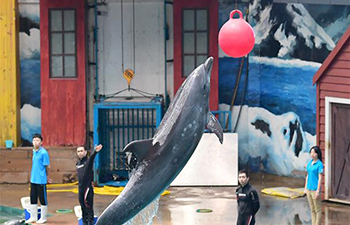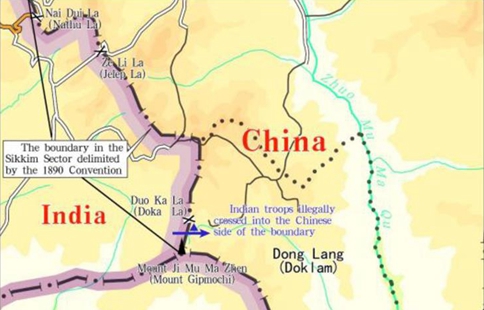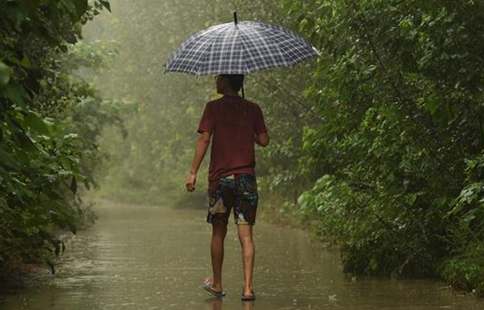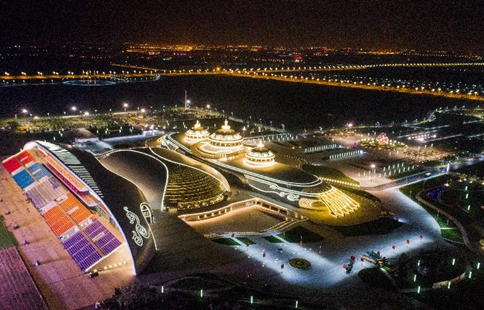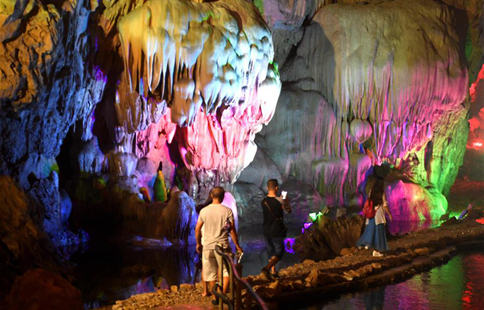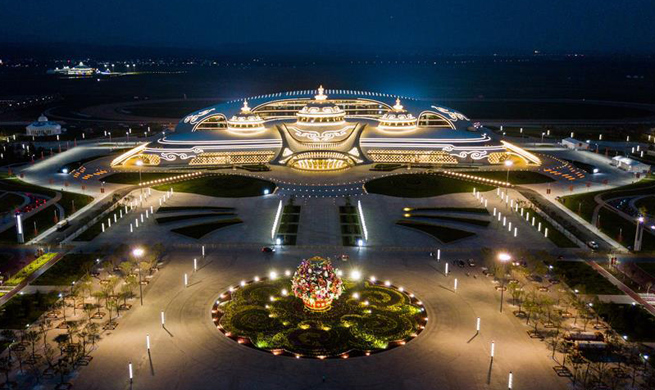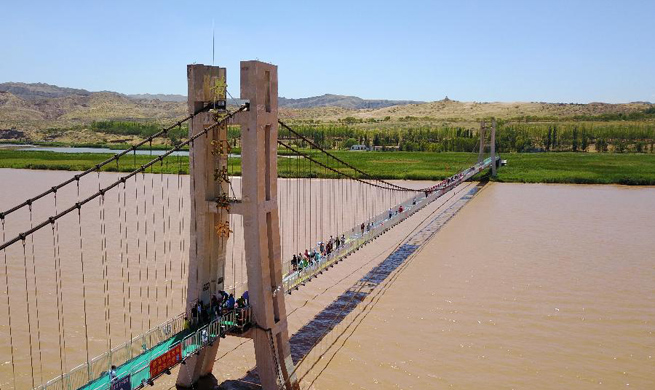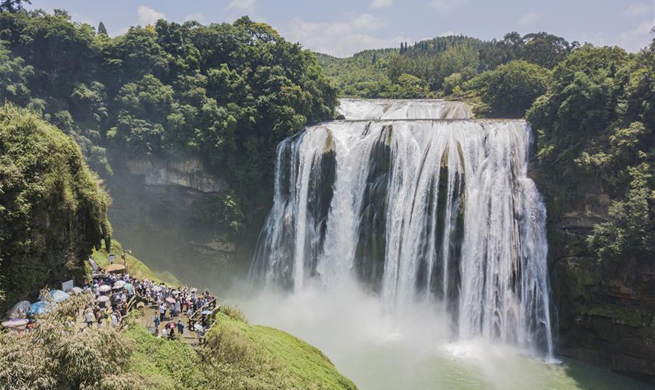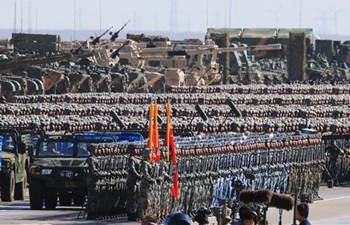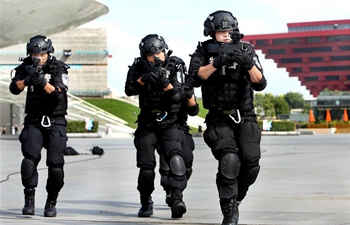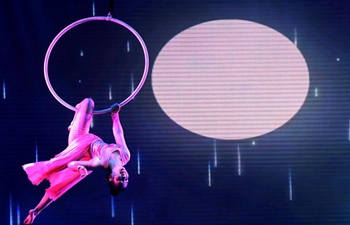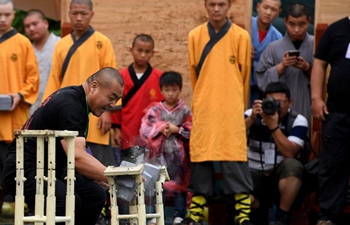By Le Yanna, Hong Dieu
HANOI, Aug. 2 (Xinhua) -- Strolling along a bamboo-lined path between a five-star hotel for dogs and cats and Vietnam's unique pet cemetery, an elderly man in his late seventies was nodding his head as if he were reciting poems or composing prose.
The man, in fact, has written around 3,000 poems.
"I have been married twice. Both of my wives looked like beauty queens. My land, buildings and money to raise my kids properly has all come from dogs," the elderly man, who lives in Hanoi's Truong Dinh Street, told Xinhua.
Lane 167 of Truong Dinh Street is a small collection of buildings comprised of a hotel for dogs and cats, and a pet cemetery.
Built on an area of 100 square meters, the five-story hotel, officially named Bao Sinh Cat Dog Resort, offers five-star facilities and services, including air-conditioned rooms, massages and "karaoke" lounges, all on a 2,000-square-meter campus.
Many Vietnamese and foreigners nowadays send their dogs to the hotel when they go on business or are busy during the festive days.
Next to the hotel is a large and well-known cemetery full of small tombs made of laterite replete with incense burners and surrounded by golden bamboo and both fresh and artificial flowers.
"I assume that in my previous life, I must have owned these animals or treated them cruelly, so I have to repay them or make it up to them in this life," joked Nguyen Bao Sinh, owner of the complex, yet better known for his artistic work as a folk poet, painter, and pet dealer, rather than grave-tender.
The cemetery was opened in 2000, the same time as the pet hotel service started.
"I was described as a lunatic by lots of people," he said. Currently, it holds the remains of some 2,000 pets.
The cemetery is also home to a pagoda of sorts, which carries the Chinese-Vietnamese words "Te dong vat nga," meaning "people and animals are equal."
The site looks like a small park at first glance and the enclosure houses a small lake, in which there stands a statue of Buddha, with little angels behind. Greenery surrounds the lake and in the shade of the trees lie the tiny tombs of the pets that have passed away.
On the gravestones, names of pets gone by have been carved such as Tuti, Lucky, Misa, Kin, Bac, Bull and Bill.
The graves include the years of their birth and death and some bear photographs on the gravestones.
One such photograph features a small white dog with the caption: "Tuti, died on July 19, 2015, or June 4, At Mui (the year of goat according to the lunar calendar)."
Sinh said that it is not uncommon to see families attend en mass to hold a funeral service to bury their beloved pets. "They cry a lot," he said.
"One day, a foreigner came here by taxi. Seeing the Westerner cry while carrying a big box, the taxi driver thought that he could be a murderer, so he called the police. On opening up the box, they didn't find a human corpse, but a dead dog," Sinh recalled, as being a particularly memorable story relating to his customers.
Within the cemetery confines is a large tomb which dominates the area. The gravestone is carved with a portrait of a German Shepherd with the name Ami.
"The name Ami means 'friend' in French. This dog is the forefather of my pet dog business industry. He was the father of hundreds of German Shepherds. Thanks to him, I set up my pet shop and have a successful career today," said Sinh.
The dog lived with him for 12 years before its death. He said that as death approached, Ami had sought him out and cried real tears before dying next to him.
Now, pet owners have to pay 7-8 million Vietnamese dong (310-354 U.S. dollars) according to the size of the plot. The cost includes the expenses of daily veneration, care for the graves, and an annual requiem ceremony for the deceased animals.
"I met difficulties at first when trying to find monks to conduct the rite as many of them refused to do it as they found it unacceptable to conduct a requiem ritual, which is commonly held for people, not animals. But finally, I met some senior monks who understood Buddhist theory better and they agreed to help me," recalled Sinh.
The bones in the graves are often unearthed and cremated after three or four years and then put into small pots or vases to be venerated. If pet owners have their dead dogs or cats cremated at first, not buried, the cost, including relevant services, is 3-4 million Vietnamese dong (133-177 U.S. dollars).
"The pet owners regularly come back to visit the graves of their pets in the first few days following the burial, but the frequency of the visits tends to decline," Sinh said.
Attending a requiem ceremony at the cemetery, a young woman named Thu Trang said: "If Mr. Sinh hadn't opened this pet ceremony, I would have had to bury my beloved dog somewhere without the proper rites. Lying here, my dog can enjoy annual requiem ceremonies and I sometimes visit its tomb."
Sinh said: "Taking care of a pet when it is still alive is very easy and can be done by anyone, but caring for them when they are dead is the work that only I can do as I have a deep empathy for them."
"This is also a way for me to show my gratitude to the animals, which provide me with a living today," he added.
The elderly man eats only one meal (lunch) a day and gets little sleep.
"Leading a life like me, you will have more time to work. In the morning, I manage my kingdom of dogs and cats. At around 3:30 p.m., I attend to other work. At 10 p.m., I come back," he said, blossoming into a warm smile.




